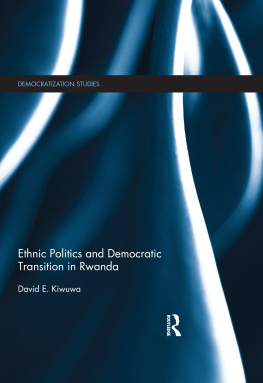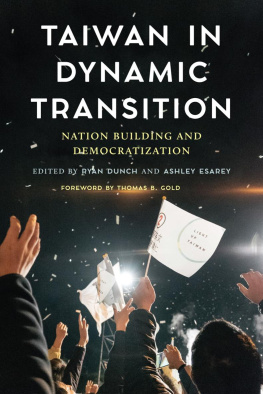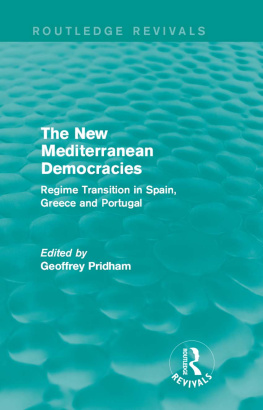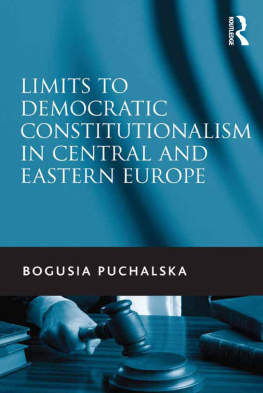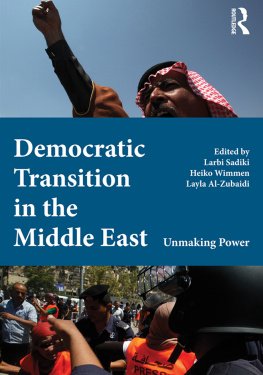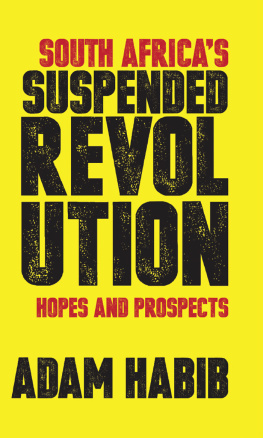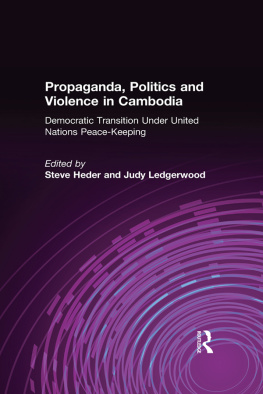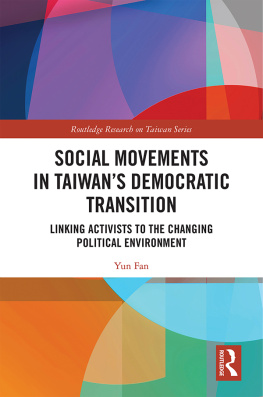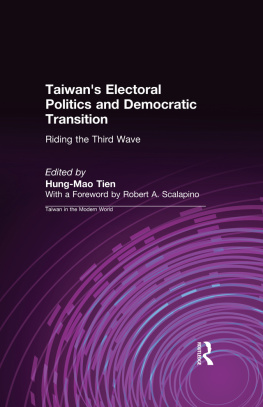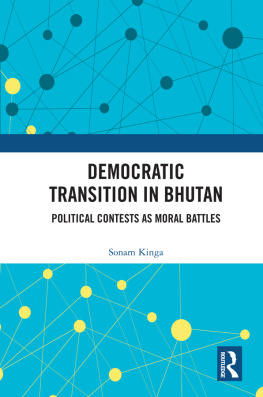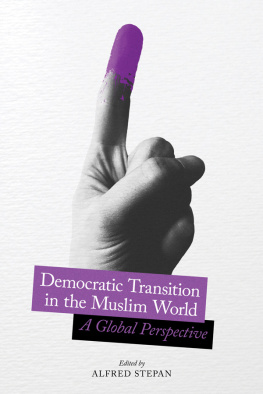Ethnic Politics and Democratic Transition in Rwanda
This book offers an examination of how a deeply divided post-conflict society embarks on democratic transition. Using Rwanda as the case study, it combines analysis of democratic transition and ethnopolitical debate, asking why deeply divided ethnic societies have a tendency to fail.
Though marginalised in existing literature on democratic transition, this path-breaking book shows how ethnicity has a significant impact on the direction and success of democratic process. The initial failure of democratic transition in Rwanda shows that the current regime will need to be sensitive to ethnicity, ethnopolitical consciousness and mobility in order to be successful in its second transition attempt. Based on key informant interviews, participant observation and primary resources, this book develops beyond the case study of Rwanda to posit a new framework that integrates variables of unity, equality, trust and institutional engineering in an integrative model to study and evaluate democratic transition in divided or post-conflict society.
Ethnic Politics and Democratic Transition in Rwanda will be of interest to students and scholars of democratisation, democracy, and ethnic politics and conflict.
David E. Kiwuwa is an Assistant Professor in the School of International Studies, University of Nottingham Ningbo, China.
Democratization studies (formerly Democratization Studies, Frank Cass)
Democratization Studies combines theoretical and comparative studies with detailed analyses of issues central to democratic progress and its performance, all over the world.
The books in this series aim to encourage debate on the many aspects of democratization that are of interest to policy-makers, administrators and journalists, aid and development personnel, as well as to all those involved in education.
1 Democratization and the Media
Edited by Vicky Randall
2 The Resilience of Democracy
Persistent practice, durable idea
Edited by Peter Burnell and Peter Calvert
3 The Internet, Democracy and Democratization
Edited by Peter Ferdinand
4 Party Development and Democratic Change in Post-communist Europe
Edited by Paul Lewis
5 Democracy Assistance
International co-operation for democratization
Edited by Peter Burnell
6 Opposition and Democracy in South Africa
Edited by Roger Southall
7 The European Union and Democracy Promotion
The case of North Africa
Edited by Richard Gillespie and Richard Youngs
8 Democratization and the Judiciary
Edited by Siri Gloppen, Roberto Gargarella and Elin Skaar
9 Civil Society in Democratization
Edited by Peter Burnell and Peter Calvert
10 The Internet and Politics
Citizens, voters and activists
Edited by Sarah Oates, Diana Owen and Rachel Gibson
11 Democratization in the Muslim World
Changing patterns of authority and power
Edited by Frederic Volpi and Francesco Cavatorta
12 Global Democracy: For and Against
Ethical theory, institutional design and social struggles
Raffaele Marchetti
13 Constructing Democracy in Southern Europe
A comparative analysis of Italy, Spain and Turkey
Lauren M. McLaren
14 The Consolidation of Democracy
Comparing Europe and Latin America
Carsten Q. Schneider
15 New Challenges to Democratization
Edited by Peter Burnell and Richard Youngs
16 Multiple Democracies In Europe
Political culture in new member states
Paul Blokker
17 Globality, Democracy and Civil Society
Edited by Terrell Carver and Jens Bartelson
18 Democracy Promotion and Conflict-based Reconstruction
The United States and democratic consolidation in Bosnia and Afghanistan
Matthew Alan Hill
19 Requisites of Democracy
Conceptualization, measurement, and explanation
Jrgen Mller and Svend-Erik Skaaning
20 The Conceptual Politics of Democracy Promotion
Edited by Christopher Hobson and Milja Kurki
21 Ethnic Politics and Democratic Transition in Rwanda
David E. Kiwuwa

First published 2012
by Routledge
2 Park Square, Milton Park, Abingdon, Oxon OX14 4RN
Simultaneously published in the USA and Canada
by Routledge
711 Third Avenue, New York, NY 10017
Routledge is an imprint of the Taylor & Francis Group, an informa business
2012 David E. Kiwuwa
The right of David E. Kiwuwa to be identified as author of this work has been asserted by him in accordance with sections 77 and 78 of the Copyright, Designs and Patents Act 1988.
All rights reserved. No part of this book may be reprinted or reproduced or utilised in any form or by any electronic, mechanical, or other means, now known or hereafter invented, including photocopying and recording, or in any information storage or retrieval system, without permission in writing from the publishers.
Trademark notice: Product or corporate names may be trademarks or registered trademarks, and are used only for identification and explanation without intent to infringe.
British Library Cataloguing in Publication Data
A catalogue record for this book is available from the British Library
Library of Congress Cataloging-in-Publication Data
Kiwuwa, David E.
Ethnic politics and democratic transition in Rwanda/David E. Kiwuwa.
p. cm. (Democratization studies; 21)
Includes bibliographical references and index.
1. DemocratizationRwanda. 2. Conflict managementRwanda. 3. EthnicityPolitical aspectsRwanda. 4. RwandaEthnic relationsPolitical aspects. 5. RwandaPolitics and government. 6. DemocratizationCase studies. 7. EthnicityPolitical aspectsCase studies. I. Title.
JQ3567.A91K58 2012
320.967571089dc23 | 2011044879 |
ISBN: 978-0-415-61608-9 (hbk)
ISBN: 978-1-136-31755-2 (ebk)
Typeset in Times
by Wearset Ltd, Boldon, Tyne and Wear
To Mum, Dad, Kelvin, Joel, Angela, Joshua, Debbie, Dan, Kenneth, Auntie Ancilla and Uncle Kefa
Stefan Wolff
The genocide in Rwanda was one of the defining moments of the last decade of the twentieth century. The killing of at least 500,000 people in the course of 100 days between April and July 1994 stands out as one of the seminal failures of the international community to prevent the mass murder of people on the basis of their ethnicity. Carefully and long-planned, the 1994 genocide was the catastrophic culmination of tensions between Hutu and Tutsi communities that dated back decades.
The particular strength of David E. Kiwuwas study of Ethnic Politics and Democratic Transition in Rwanda lies in his ability to present a comprehensive analysis of how ethnic politics played out in Rwandas first transition to democracy prior to the genocide and to broaden the findings of this study beyond the specific tragedy of this country.
Given the challenges that Arab Spring currently presents to policy-makers in countries like Libya, Egypt and Yemen, and to their international partners, it is obvious that the difficulties that transitions to democracy encounter in divided societies must not be underestimated. Likewise, the mixed success of attempts to promote democracy from the outside in Afghanistan and Iraq illustrates precisely why such transitions against the background of fierce rivalry between different communities engaged in what is often seen as a zero-sum game are immensely problematic.

